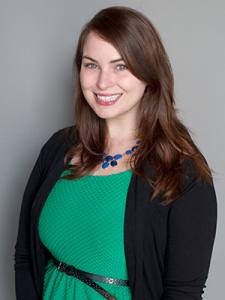
Terry Enloe oversees 13 officers as head of the Magnolia Police Department.[/caption]
After living in the Magnolia area for more than 15 years, Terry Enloe was sworn in as the city’s new police chief May 12. Enloe previously worked for the Harris County sheriff’s office—the largest department in the state and the third-largest in the country—for 33 years before signing on to lead the Magnolia Police Department. Enloe succeeds Charles Wedemeyer, who served as the interim chief of police from Nov. 25 until late April after former police Chief Domingo Ibarra resigned from the department. As chief, Enloe said he wants to help the department plan for future development projects and growth in and around the city.
How do you think your previous experience has prepared you for this new role?
I’ve dealt with a plethora of politics from the local to federal level, [and] I’ve also had to deal with budgets, manpower [issues], critical instances, press conferences and more. This [job] doesn’t come near to touching the magnitude of what I came from. It’s got its share of responsibilities, but it’s not as huge.
How have you adjusted to your new role in Magnolia?
It’s been a very easy adjustment. We’ve got a lot of good guys and when you’ve got people who are competent, it makes my job a lot easier. You bring in people who can do the job, and you let them do it. It allows me time to go out on the streets.
What is your vision for the department?
We’re growing and we’re growing quickly. We’ve got [big stores] coming in, a couple of nice-sized subdivisions coming in, and that’s going to draw people in from all over. So my vision is to get ahead of the curve because we’re going to need extra people. With new [retail companies] coming in, you’ll get an increase in shoplifting—not on a big scale—but it will still [happen]. So looking forward, I’d like to set a time frame to get extra staff to be able to handle those calls without taking away from the calls in the city. Our call load will increase, and our arrest record will increase. It’s inevitable.
Are there any specific programs you would like to implement within the department?
I’m looking into adding more firearms training, more hands-on training and preparing [for emergency situations]. We’ve got schools within our jurisdiction, and if anything goes down, we’ll get the call. [I’d like to] give the staff a little more tactics training, more knowledge—that type of thing.
How do you envision the department in the next five to10 years?
With the growth [we’ll see] 10 years down the road, we’ll probably double [the number of officers] and have our own freestanding police department. Right now we have 13 officers in a small building, and eventually I foresee [the current office becoming] part of the courts. We’ll be lucky enough [in the future] to have our own building with a roll call, a taped interview room where officers can conduct interviews, freestanding workstations where they can get out of their car and use a larger computer instead of a laptop, and somewhere they can go and take a break.
What are some of the biggest law enforcement challenges in the city?
Traffic. Looking at FM 1774 and FM 1488 during rush hour and the traffic flow, it’s currently the biggest issue we have.
For the most part, the people in the community are honest working folks or retired, so most of our trouble that we have comes from outside of the community. We’re right on the crosshairs of [having] a major north/south [corridor] and a major east/west [corridor], and that brings a lot of people through.
[A big challenge will be] keeping up with the growth: having enough people to take care of citizens, being able to handle the calls in a timely manner, being able to respond to emergency situations and being able to handle it on our own without any help from nearby law enforcement.
 Terry Enloe oversees 13 officers as head of the Magnolia Police Department.[/caption]
After living in the Magnolia area for more than 15 years, Terry Enloe was sworn in as the city’s new police chief May 12. Enloe previously worked for the Harris County sheriff’s office—the largest department in the state and the third-largest in the country—for 33 years before signing on to lead the Magnolia Police Department. Enloe succeeds Charles Wedemeyer, who served as the interim chief of police from Nov. 25 until late April after former police Chief Domingo Ibarra resigned from the department. As chief, Enloe said he wants to help the department plan for future development projects and growth in and around the city.
Terry Enloe oversees 13 officers as head of the Magnolia Police Department.[/caption]
After living in the Magnolia area for more than 15 years, Terry Enloe was sworn in as the city’s new police chief May 12. Enloe previously worked for the Harris County sheriff’s office—the largest department in the state and the third-largest in the country—for 33 years before signing on to lead the Magnolia Police Department. Enloe succeeds Charles Wedemeyer, who served as the interim chief of police from Nov. 25 until late April after former police Chief Domingo Ibarra resigned from the department. As chief, Enloe said he wants to help the department plan for future development projects and growth in and around the city.




